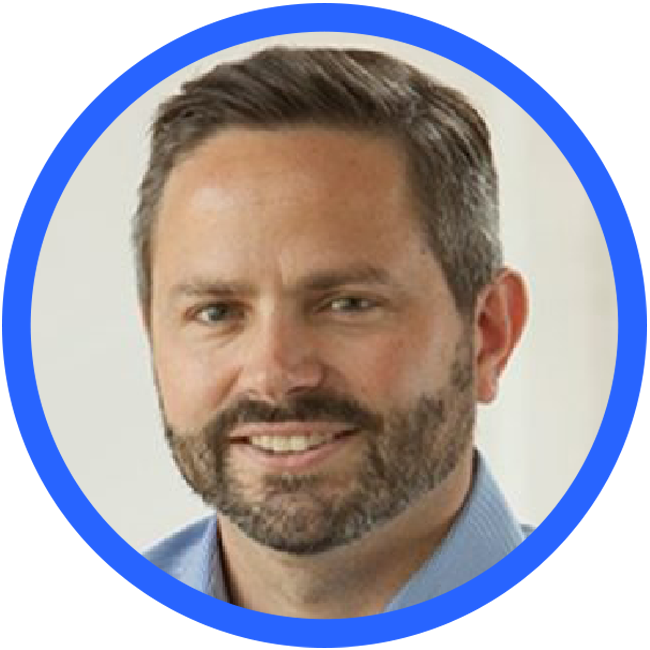Approaching Life With a Lean Startup Mindset


Ben Hafele is a senior faculty member at Lean Startup Co, where he leads training, coaching, and consulting engagements with startups, large corporations, and government agencies. Ben is an experienced Lean Startup practitioner, program manager, educator, and coach. He has worked with over 400 startups and innovation project teams spanning 5 continents.
You came to Lean Startup Co from Caterpillar. Why did you make that move and why do you feel it’s so important to share Lean Startup principles?
We were having good success using Lean Startup at Caterpillar, and I wanted to help other companies because it took a long time to learn what we learned. It was a really hard road, and I wouldn’t wish that journey on anyone. I’d met enough peers across other organizations, other enterprises, that I knew it was really hard to do this kind of stuff in a large organization. Everything’s against you. The budget’s against you. The way that most managers think is against you. Timelines are against you. The way that even annual goals are set up is against you. I was helping innovation teams at one company, and I wanted to grow my impact by joining Lean Startup Co.
Can you tell me about some of your best Lean Startup application experiences?
There’s really two types of success, right? There’s the first type which everybody wants, which is where you can vet, shape, and de-risk a new business opportunity, and then it scales and has a huge impact. A big one of those came when we helped a client to understand what problem they should be addressing for a very large customer segment. It was something that had been evading that company for a very long time. And once we started viewing the world through the lens of what customer problems should be solved, all of a sudden our MVPs and our solution concepts really started to resonate with that customer segment for the first time. That was a really awesome feeling.
The other type of success is finding out something is a loser early and not wasting a bunch of time and money. We’ve had some really satisfying cases where we went in and worked with a team for maybe three or four weeks, then came back to the sponsor with definitive evidence that the company shouldn’t be working on that thing. A hundred percent, this is not an opportunity. And those sponsors are like, “This is amazing. Thank you. We’ve been thinking about this for a long time, but we’ve never had any structure or process to do it. So thank you very much. We’re going to move on to something else for a positive ROI.”
Are there ways that you have found that Lean Startup principles have seeped from your work life into the rest of your life?
Yes — literally into the house that I’m sitting in right now. We’d been talking about moving for years and years and years. At one point we were sitting at the kitchen table, conceptually thinking about it, and I said, “Why don’t we just get out of the building? Get out of our house and just start looking at other houses rather than assuming we know what’s out there and what we like and don’t like?” We actually ended up smack dab in the middle of a neighborhood we said we hated. But it’s affordable and close to everything. So now we live in the middle of exactly where we thought we didn’t want to be because we used evidence to actually figure out we do want to be here.
Outside of the Lean Startup space, is there a value or principle that you consistently live your life by?
I’ll give you my big one: If you say you’re going to do something, then do it. And if you’re not going to do something, don’t say you’re going to do it. I’m not always able to live up to that, but that’s my goal. I say this to teams and also outside of work. My 11-year-old will say, “Hey, can we have a pillow fight tonight?” I say yes. And then there’s a 7 o’clock meeting with Australia or something, and some emails. His bedtime’s 9 o’clock and my wife gets home from work at 9:30 and we’re having a pillow fight. And I just say: “I told him we would. I’m not going to go back on my word.”
What things do you do to keep balance in your life? Have pillow fights?
Yeah, have pillow fights! But let me put it this way: My work is my passion. Before Lean Startup Co. this is what I did in my free time. I enjoy this, and I’d be doing it for free right now if I wasn’t getting paid to do it. And so for me, it’s not about balance. I think that’s the wrong paradigm. I think it’s, how do I keep my energy up to do this until a long time from now? I’ll do 20 minutes of work and then take a 20-minute break and then do 20 minutes of work if I’m really low on energy. That works a lot better than just sitting there and forcing myself to stare at a screen for four hours in a row. My productivity goes to zero if I do that. I used to not be a TV person, but now I’ll find a TV series that I like, and I’ll watch that. Or I walk around the block, or go on a run, or go on a bike ride. It’s a mix, but I try to do two workouts a day.
What’s something you see in the world that needs innovation? That makes you think, ‘Somebody needs to get on this now’?
I was a Peace Corps volunteer in West Africa. I thought a lot about how the people I worked with just happened to be born there, and I just happened to be born in the U.S. As a result, I have a lot of privileges and rights that they just don’t have. Entrepreneurship is second nature there. It just needs a little bit of equipping. The people are super tenacious and amazing — it’s just giving access to some information and some tools. I’ve actually tried and failed in this space, and I’m going to try again. I had a nonprofit where we basically trained entrepreneurs on business fundamentals, like a mini MBA, that had a really significant impact. And that’s before I knew about Lean Startup. So now I’m really excited to use Lean Startup as a tool to help entrepreneurs and help improve lives in economies that are underdeveloped.
